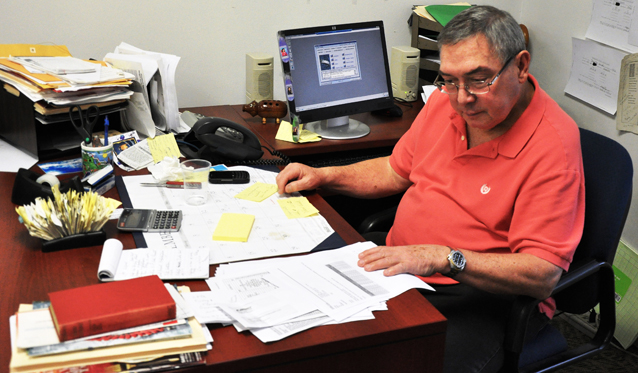By Joshua Colon
Victor Cruz finds himself living his own version of the “American dream,” decades after leaving Cuba, a country that was not only at odds with the U.S., but heading toward a dark path.
“I was amazed walking into a supermarket and seeing food, candy, and soda everywhere, while in Cuba, stores were empty and it was hard to find anything you needed,” says Victor Cruz, 62, a Westchester County resident.
Cruz became a U.S. citizen at the age of 19. He graduated with a B.S. in accounting from Manhattan College in 1973 and became an auditor for the IRS.
“Getting out, I really became interested in doing work within the government, so I applied and got the job,” he says. Being an auditor was not his forte, says Cruz. “It was too boring.”
“After about one year, I decided to apply at the enforcement branch of the Treasury Department, which at that time was known as Treasury Intelligence,” he says.
He became a special agent and began to investigate financial fraud.
“During these investigations, I, along with other agents, teamed up with the DEA or ATF to take down the criminals,” says Cruz.
His task was to capture individuals involved in organized crime: drug dealers, bookies, and gamblers.
At times, it was extremely stressful says Cruz. “I served about two years undercover in Puerto Rico as a drug dealer who was looking to launder money.” Cruz says this would eventually lead to the biggest bust of his career in the agency. Roughly 110 people were prosecuted, which included 21 bankers who were involved in laundering money and other criminal activities.
After 25 years, Cruz decided to retire. “I was entitled to a pension and the fact that it was a young man’s job helped me make my decision,” he says.
Having retired as a special agent for Treasury Intelligence, Cruz became a healthcare administrator.
“I liked working with the people and patients,” he says. “On top of it all, I got a chance to reconnect with the Spanish culture, which I really never did.”
The Cuban-born Cruz was raised in the Oriente province of Cuba, which is on the eastern part of the island. It is also, coincidentally, where Fidel and Raul Castro were born. The son of Vincente and Blanca, Cruz was born April 29, 1950.
He says he had a somewhat difficult time growing up. “My mom and dad really tried everything within their power to raise me to be all that I could be,” he said. His parents decided Cuba was becoming “a bad place to be,” says Cruz, so they left everything behind to emigrate to the U.S. “The way that the Castro regime was handling the government and country wasn’t something that they felt that I needed to be a part of growing up,” Cruz says.
They flew via Pan American Airlines from Havana, Cuba, to Miami. Then from Miami to New York, arriving JFK, known then as Idlewild Airport.
“I became the man who I am today and have no one to thank other than my parents who risked everything to bring me here,” he says.

Cruz, along with his parents ended up in Washington Heights when he was nine. “I was shocked when we came to New York” he says. “We came from a pretty large apartment with flowers and open air and ended up living in a fifth floor apartment with my uncle and other family members.”
New York was not what Cruz expected. “I was led to believe that New York was one of the most beautiful places on Earth, but it was not like that at all,” he says.
He did not know a word of English but Cruz says that he learned by watching the show “Osmosis” and Steve Allen on TV. He even read the work of Edgar Alan Poe.

The view from Gotham Per Diem.
Cruz now works at Gotham Per Diem, which is located in the Fordham Road section of the Bronx. His job entails managing the office staff, which is made up of 15 people who send aides to approximately 500 patients, not only in the Bronx but also around New York City.
As a health care administrator, Cruz has some thoughts on Obamacare. “Too many people in the United States are uninsured, so this will actually help bring that number down,” he says. “It will also lessen the strain that is currently on the healthcare system, which is in trouble.”
There is a trickle down effect says Cruz. “Obamacare would make healthcare more available to those who either can’t or couldn’t afford it. It also helps adults who aren’t able to find jobs remain on their parents insurance until around the age of 26.” He adds, if more money is being put into the healthcare system, he will be able to keep the workers he has employed and those looking for jobs could have a temporary or part-time job as a healthcare worker.
Cruz does not know when, or if he will retire as of yet. “I plan on working as long as I have work, enjoy it, and as long as my health is good,” he says.




